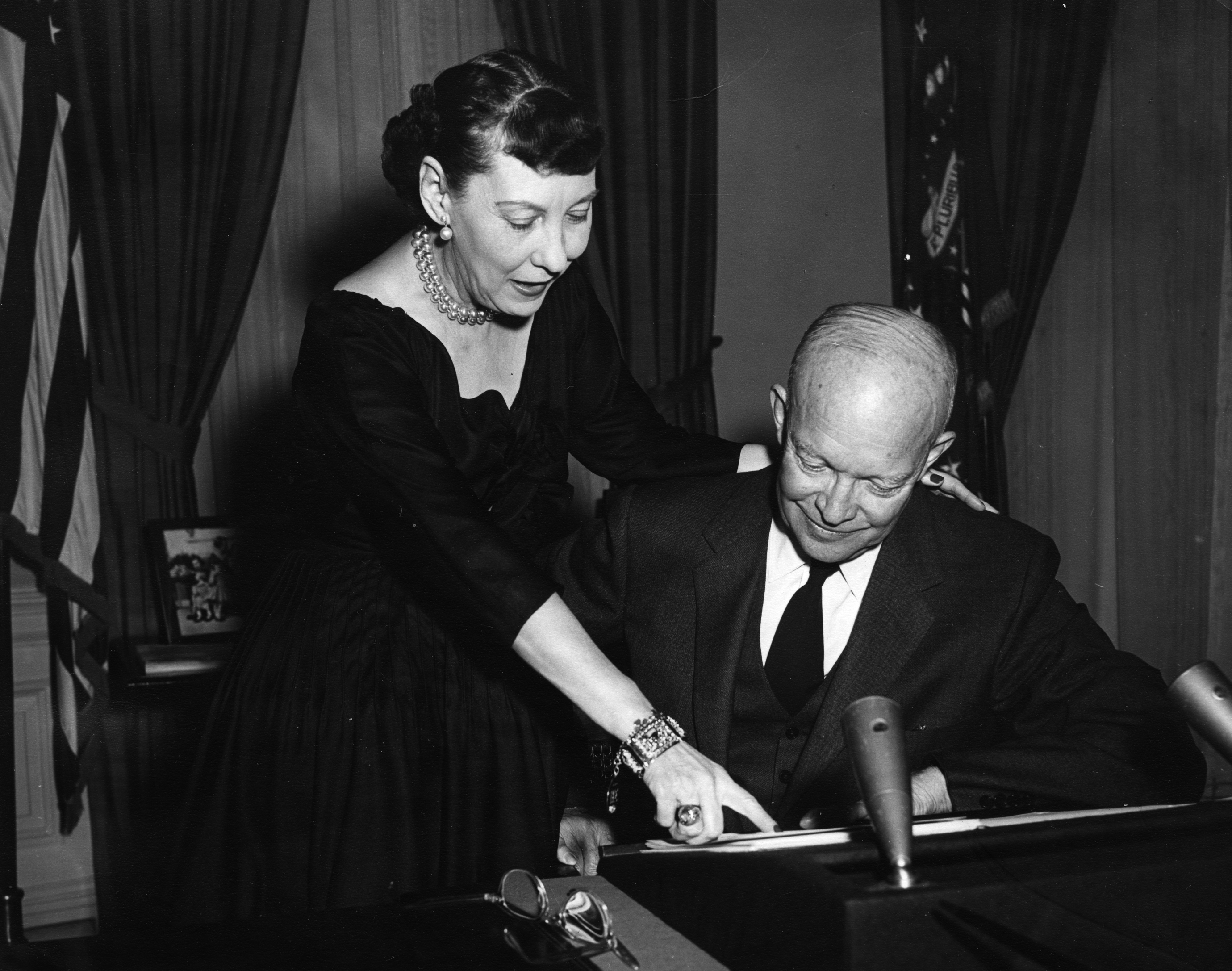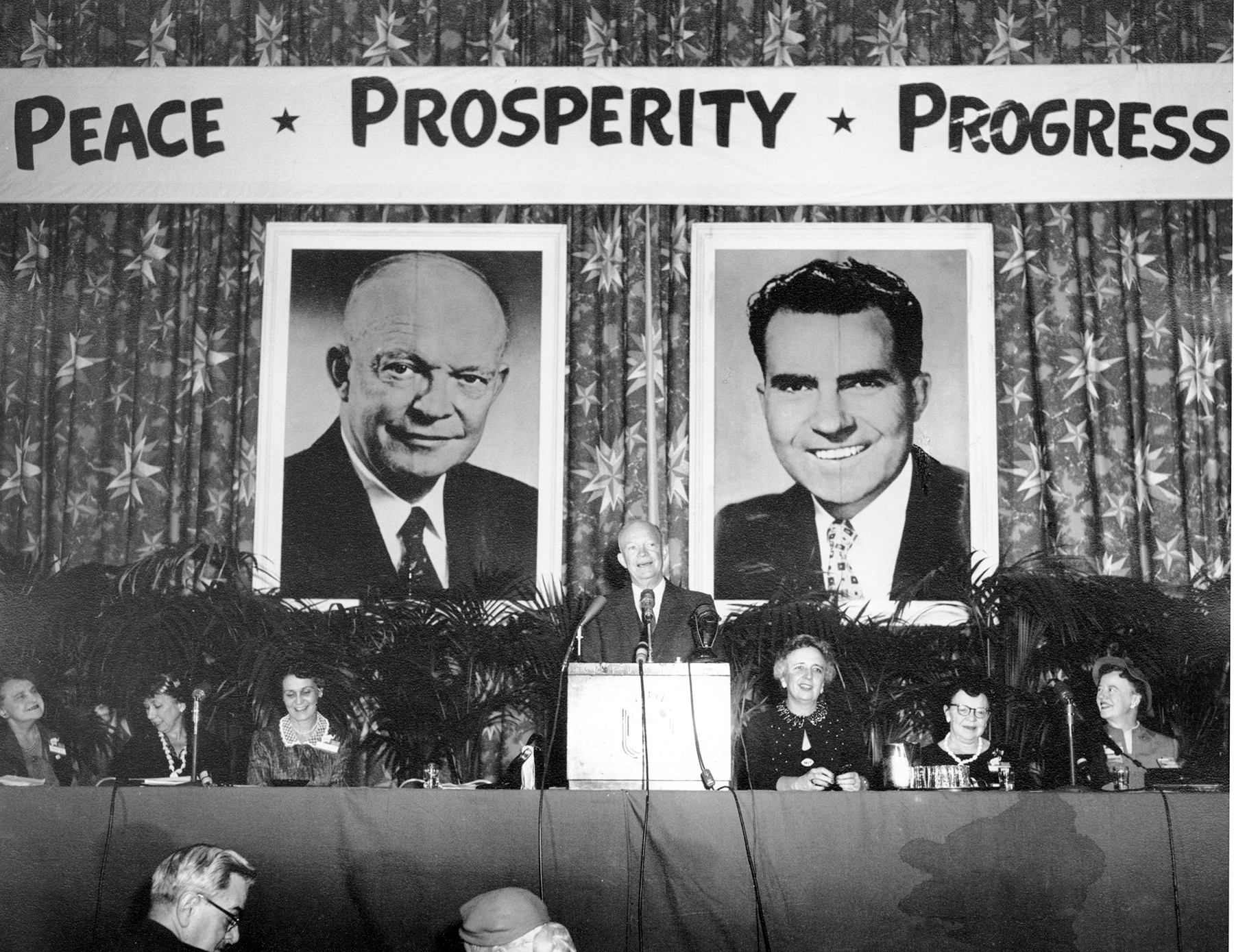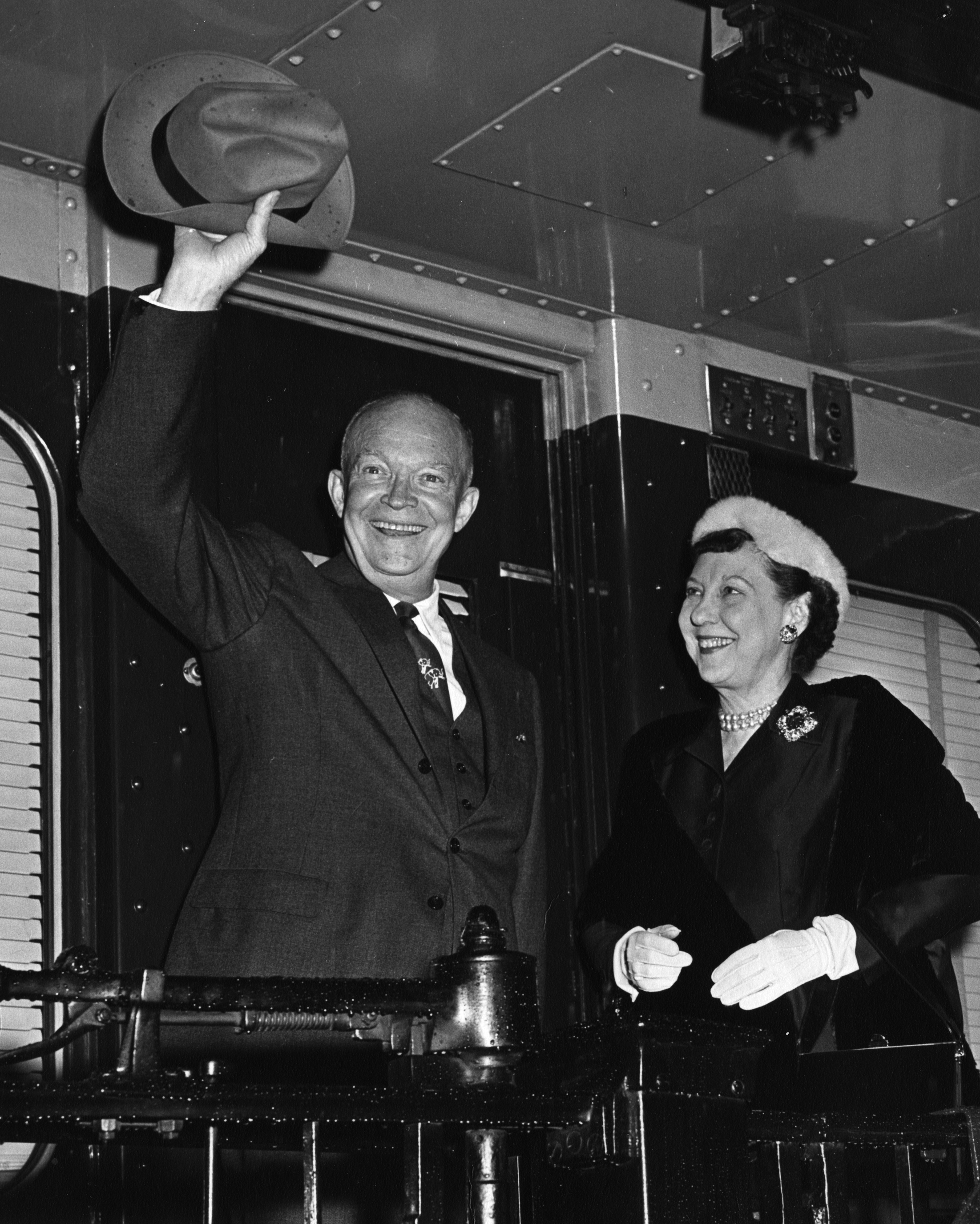After his doctor pronounced him fully recovered in February 1956, Eisenhower announced his decision to run for re-election. The Democrats set up a replay of the 1952 contest by nominating Adlai Stevenson. The result was an even greater Republican landslide. Eisenhower was a popular incumbent president who had ended the Korean War. Two world crises helped cement his lead in the final days of the campaign: the Soviet Union invasion of Hungary; and the attack on Egypt by Britain, France, and Israel in an effort to take over the Suez Canal. Eisenhower kept the United States out of both conflicts. As is traditional during a military crisis, American voters rallied behind their president. The events also undermined two of Stevenson’s key positions: the suspension of hydrogen bomb testing, and the elimination of the military draft. Eisenhower's 1956 campaign was the first presidential campaign to rely heavily on political televised commercials.
"I shall continue, with earnestness, sincerity and enthusiasm, to discharge the duties of this office."
~ President Dwight D. Eisenhower, February 29, 1956
Additional Resources:

- Unrestricted

- Unrestricted

